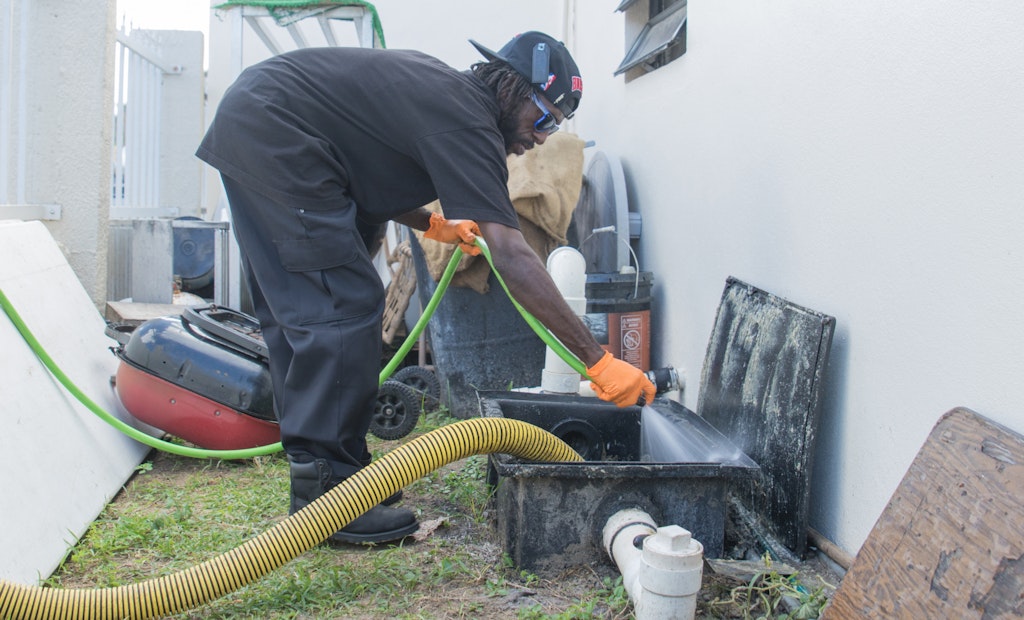Interested in Grease?
Get Grease articles, news and videos right in your inbox! Sign up now.
Grease + Get AlertsWhen the main treatment plant on the island of St. Thomas in the U.S. Virgin Islands stopped accepting grease trap waste about 10 years ago, Lew Henley moved to plan B: Processing the waste himself with a Greasezilla separation system.
“I went to the Pumper show (now the Water & Wastewater Equipment, Treatment & Transport Show) and saw it could be a viable solution,” says Henley, the owner of Lew Henley Sewage Disposal in the city of Charlotte Amalie.
At the time, the entrepreneur was in a month-to-month lease on his shop building, plus he wanted the option of doing on-site grease separating. So he asked Greasezilla officials if they could design a portable system.
“They’d never done that before, but they made it portable by putting it on a 45-foot low-boy trailer with a generator to power it,” Henley says.
The system’s footprint is approximately 11 feet long by 7 feet wide by 7 feet high. It typically features two 10,000-gallon tanks in which grease trap waste is heated by a boiler to a temperature of up to 160 degrees F. Henley’s system has only one tank.
The debris then separates into four layers: rich brown grease at the top, followed by debris, water and food particles. “We pump off the brown grease into a separate holding tank and sell it as biofuel,” he says. The remaining waste, which now is pasteurized and nearly free of suspended solids, is taken to a wastewater treatment plant.
A typical treatment cycle for a full tank takes about 24 hours, Henley says. About 5% of the brown grease produced in each dewatering cycle is pumped back into the system and used as fuel.
The system represented a significant investment. But Henley says it was worth it because without it, he would’ve lost the revenue generated by the grease trap business. “No disposal solution, no pumping grease,” he says.
As an added bonus, is he now is in a position to generate a revenue stream by dewatering grease for other contractors, he says.






